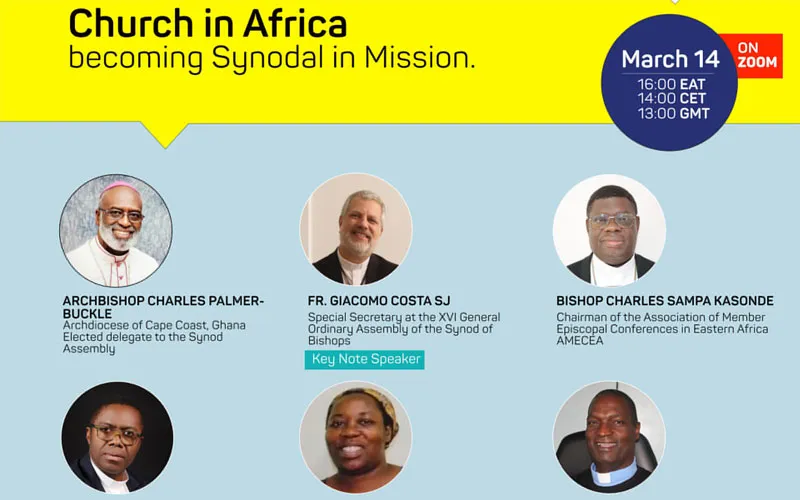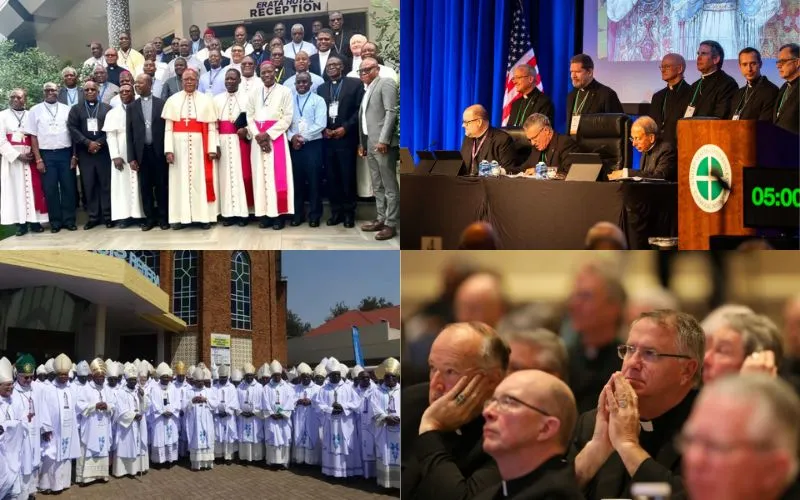Nairobi, 15 March, 2024 / 10:40 pm (ACI Africa).
Initiatives towards training, engaging in dialogue, aiming for a common ground in decision-making processes, and the fostering of inclusive participation are some of the ways the spirit of Synodality can be fostered in families and among members of the new way of being Church in Africa, the Small Christian communities (SCCs), the Chairman of the Association of Member Episcopal Conferences in Eastern Africa (AMECEA) has said.
Speaking at a Thursday, March 14 virtual conference that AMECEA organized in partnership with the Association of Consecrated Women in Eastern and Central Africa (ACWECA), the African Synodality Initiative (ASI), and the Pan-African Episcopal Committee for Social Communications (CEPACS), an entity of the Symposium of Episcopal Conferences of Africa and Madagascar (SECAM), Bishop Charles Sampa Kasonde also explained how engaging in missionary activities and striving for “a deepened spirituality” can contribute to the fostering of Synodality among family and SCC members in Africa.
Formation/Training
AMECEA can “provide formation programs for families and SCC members on the meaning and importance of synodality, including its theological foundations and practical implications,” Bishop Kasonde said.
The Local Ordinary of Zambia’s Catholic Diocese of Solwezi since his Episcopal Consecration in May 2010 explained that the training initiatives would take the form of sessions of catechesis, workshops, and study sessions on relevant Synodal documents.








